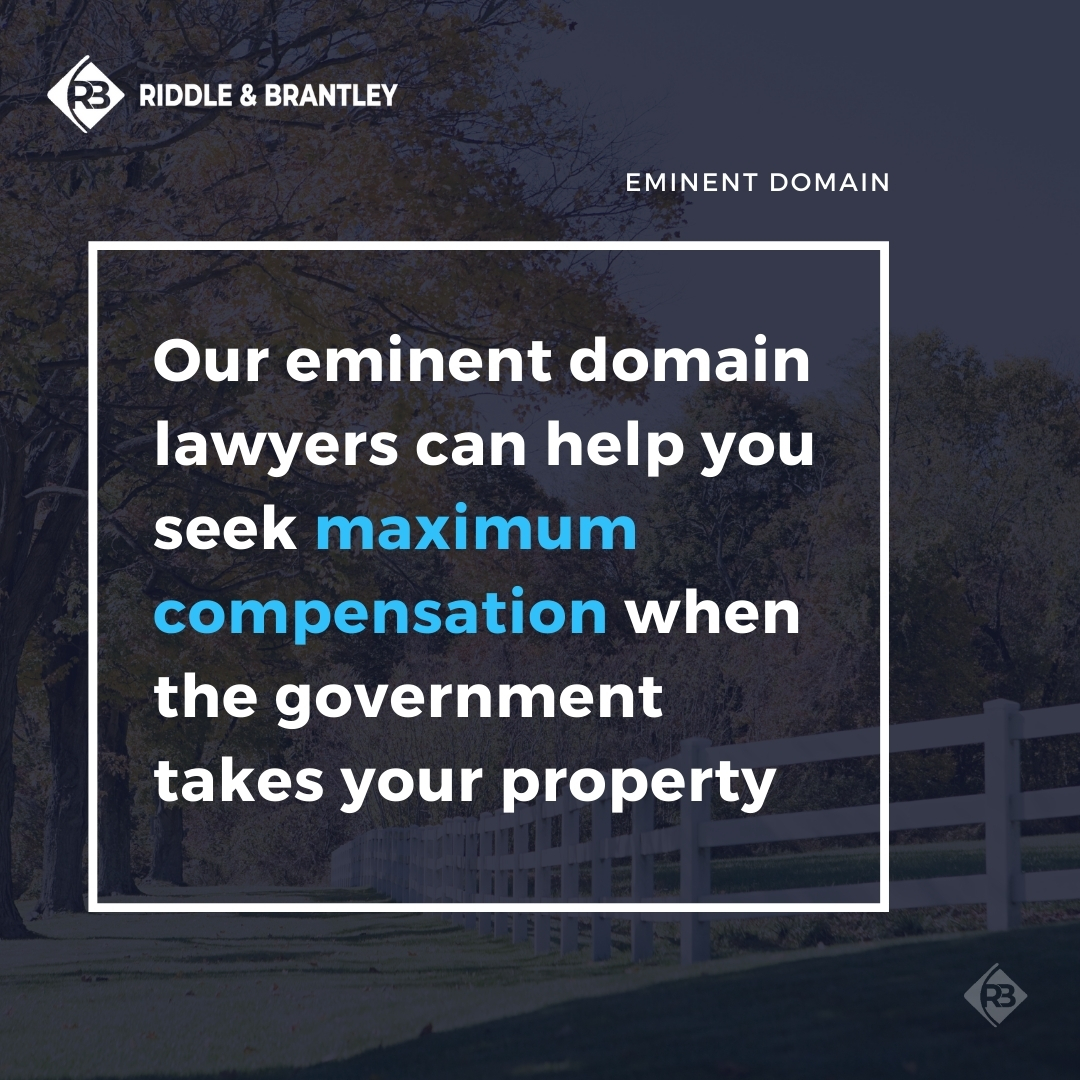Help with Moving Costs When the Government Takes Your Property
Is the government taking your property under eminent domain and forcing you to move?

Sometimes when the government takes your property, they end up taking so much of your property that you are forced to relocate from your home. The government — often the North Carolina Department of Transportation (NCDOT) — decided to take your property, so now you are stuck uprooting and moving to a new location. You may hire movers, pack your furniture and belongings, and have to get utilities, water, internet, and other services for your new home.
When the government or a utility takes your property under eminent domain, it is only fair and just that the condemning authority cover those expenses incurred during the relocation.
Compensation may be available to help with moving costs when the government takes your property, and our experienced North Carolina eminent domain lawyers can help.
Assistance with Relocation Expenses for Residential Property Owners
In North Carolina, the Uniform Relocation Assistance and Real Property Acquisition Policies Act provides for help with relocation. Not everyone will receive assistance and the amounts will vary from case to case based on those who do receive it.
Expenses potentially covered for residential relocation include:
- Closing costs on a new mortgage
- Hiring a relocation assistance agency
- Supplemental funds for a rental or down payment on a purchase
- Moving expenses
- Loss of personal property as a result of the relocation
These costs and expenses will vary based on the situation. An experienced North Carolina eminent domain lawyer can help you get the compensation for relocation that you deserve.
“What about relocation expenses for businesses affected by eminent domain?”
There are different rules for businesses under North Carolina's Uniform Relocation Assistance and Real Property Acquisition Policies Act for businesses.
Businesses may be able to recover re-establishment expenses such as:
- Repairs or improvements to the replacement real property as required by law
- Modifications to the replacement property to accommodate the business operation or make replacement structures suitable for conducting the business
- Construction and installation costs for exterior signage
- Provision of utilities from right of way to the replacement site
- Redecoration or replacement of soiled or worn surfaces at the replacement site
- Licenses, fees, and permits
- Advertisement of relocation location
- Feasibility surveys, soil testing, and/or marketing studies
- Professional services in connection with the purchase or lease of a replacement site
- Estimated increased costs of operation during the first 2 years at the replacement site for such items as lease/rental charges, personal or real property taxes, insurance premiums, utility charges other than impact fees
Other items considered essential to the reestablishment of the business may also be covered.
Are You Being Forced to Move Due to Eminent Domain?
If you are being forced to relocate because the government is taking your property (either residential or commercial), you may be entitled to compensation for related expenses.

An experienced eminent domain attorney can help you get maximum compensation for your taken property, and also assist with getting compensation for relocation costs.
For a FREE consultation with an experienced North Carolina eminent domain lawyer, please call 1-800-525-7111 or complete the convenient form below.
There is no obligation and you won’t pay any attorney fees unless we win your case and your receive a settlement greater than the initial offer.
Please call 1-800-525-7111 today and let’s review your claim.
“[Riddle & Brantley] increased my final settlement payment by 33 percent.”
-C. Humphrey, Riddle & Brantley eminent domain client
Justice Counts for those whose property is taken by the government, and you deserve fair compensation. Call 1-800-525-7111 today and let’s talk.
*** Disclaimer: The results mentioned are intended to illustrate the type of cases handled by the firm. These results do not guarantee a similar outcome, and they should not be construed to constitute a promise or guarantee of a particular result in any particular case. Every case is different, and the outcome of any case depends upon a variety of factors unique to that case.